Brexit: Šefčovič says EU will not renegotiate NI Protocol
- Published
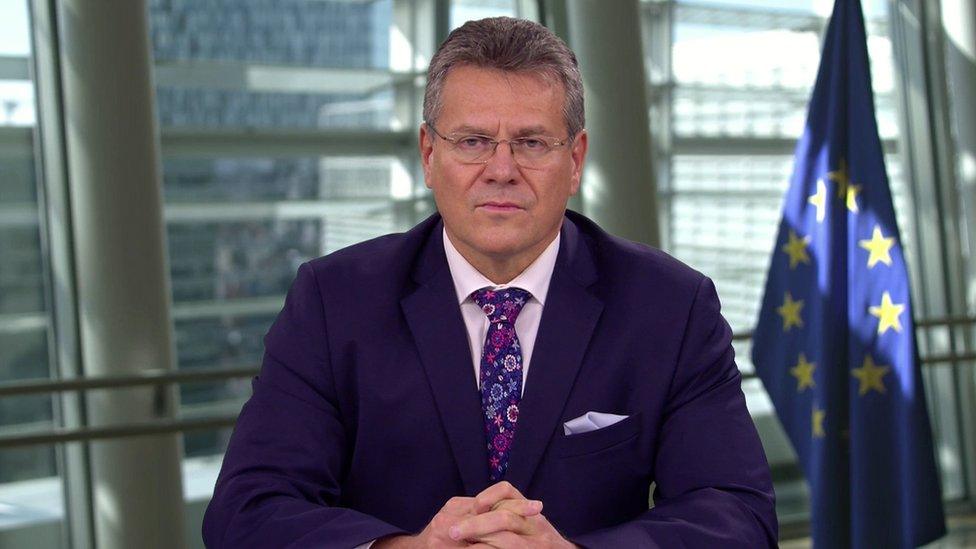
Maros Šefčovič says he has "no mandate" to renegotiate the Northern Ireland Protocol
European Commission Vice-President Maros Šefčovič has said he is "not ready to renegotiate" the Northern Ireland Protocol.
On Wednesday, he revealed a plan to reduce post-Brexit checks on goods arriving into Northern Ireland from the rest of the UK.
It seeks to calm a long-running dispute over a key part of the Brexit deal.
He told the BBC that the EU was ready to discuss issues and concerns with the protocol.
Mr Šefčovič added that the EU would "respect deals we have signed which became international law".
But he said he had "no mandate to renegotiate protocol".
Northern Ireland's special Brexit deal keeps it in the EU's single market for goods and allows free-flowing trade with the EU.

What is the EU proposing?
Most food products will not need to be physically checked when arriving into Northern Ireland from Great Britain
A cut to the required administration for Northern Ireland importers
Expanded trusted trader arrangements meaning more products and companies are exempt from customs tariffs
Change to current laws to ensure no disruption to moving medicines across the Irish Sea
Improved engagement with stakeholders in Northern Ireland including politicians and business groups

The UK says the arrangement imposes too many barriers, as goods arriving from Britain face checks and controls.
The EU says its new plan would remove about 80% of spot checks and cut customs paperwork by 50%.
However, the measures fall short of UK demands to fundamentally change the protocol by removing the European Court of Justice (ECJ) - the EU's highest court - from an oversight role.
On Tuesday, the UK's Brexit minister Lord Frost proposed plans for an entirely new protocol to replace the existing one.
As part of these plans, the UK government wants to reverse its previous agreement on the oversight role of the ECJ.
The Brexit agreement states that the ECJ has jurisdiction to rule on matters of EU law in Northern Ireland - so for example, if there was a dispute around complying with applicable EU law, the EU could take the UK to the ECJ.
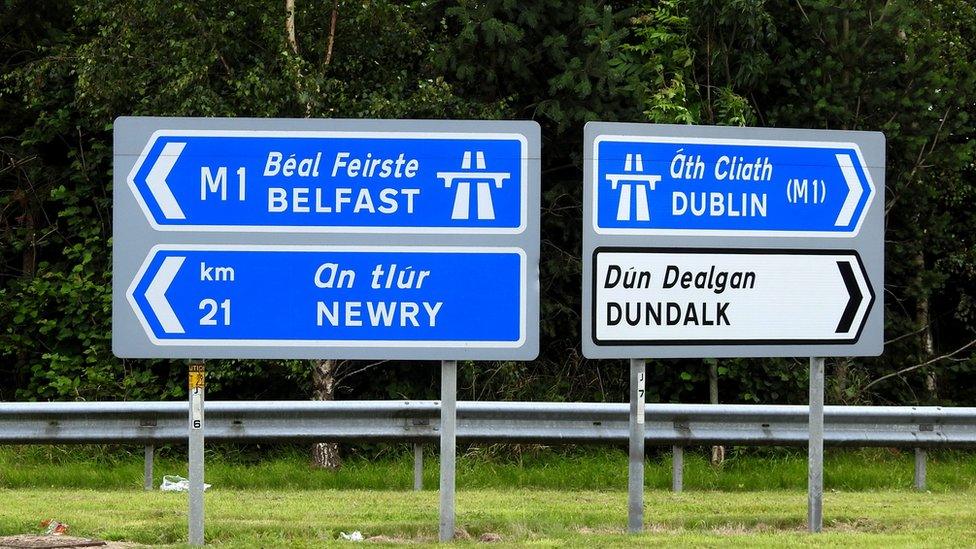
The protocol avoids a hard border on the island of Ireland
Speaking to BBC NI's The View programme on Thursday, Mr Šefčovič said: "I do not see how we can have access to the single market without oversight from the European Court of Justice."
Mr Šefčovič said he wants to see a revised protocol agreement signed off "before the end of the year".
He said he hopes to "start the new year with a new agreement and with a positive new EU/UK agenda".
"I have demonstrated I can do a lot, I am testing flexibility within the protocol but we should respect it and look how practically we can resolve the problems linked to protocol," he said.
"I am ready to go at big lengths to achieve that."
He said the EU's proposal is "far reaching" and that he is "delivering on my promise that I would do whatever it takes to deliver on concerns linked with medicine supply".
Former UK Brexit secretary David Davis cast doubt on a deal made before Christmas, but said he believed Mr Šefčovič was "trying very hard" to achieve this.
But he told The View that if the EU refused to make concessions on the oversight role of European Court of Justice, Article 16 would be triggered as a result.

NI Protocol: The basics
The Northern Ireland Protocol is part of the Brexit deal: It is an agreement that means goods can pass freely across the Irish border. Basically, lorries don't have to stop and prove their goods follow EU rules when they go between Northern Ireland (in the UK) and the Republic of Ireland (in the EU).
It means Northern Ireland still follows some EU rules: As the rest of the UK (England, Scotland, Wales) no longer follow EU trade rules, some goods from there have to be checked when they arrive in Northern Ireland.
But some goods from Britain can't enter Northern Ireland at all: EU rules don't allow certain products, like chilled sausages, to enter its market. A grace period, where the rules don't apply, has been in place since January but no long-term solution has been found.
Read more: The Northern Ireland Protocol explained

The UK government said it was studying the detail of the EU's proposals.
Lord Frost is meeting Mr Šefčovič in Brussels on Friday to begin this process, and talks between the EU and UK on the new proposals are likely to go on for several weeks.
Mr Šefčovič met with four of Northern Ireland's main party leaders on Thursday.
Speaking after the meeting, Democratic Unionist Party (DUP) leader Sir Jeffrey Donaldson said agreement with the EU is possible, even though unionists believe the proposed changes to the Northern Ireland Protocol did not go far enough.
Sir Jeffrey said officials from the EU and UK would meet later this week.
"What the EU have put on the table falls well short of what we need," he said. "But progress is being made and we need to see more progress in the next few days."
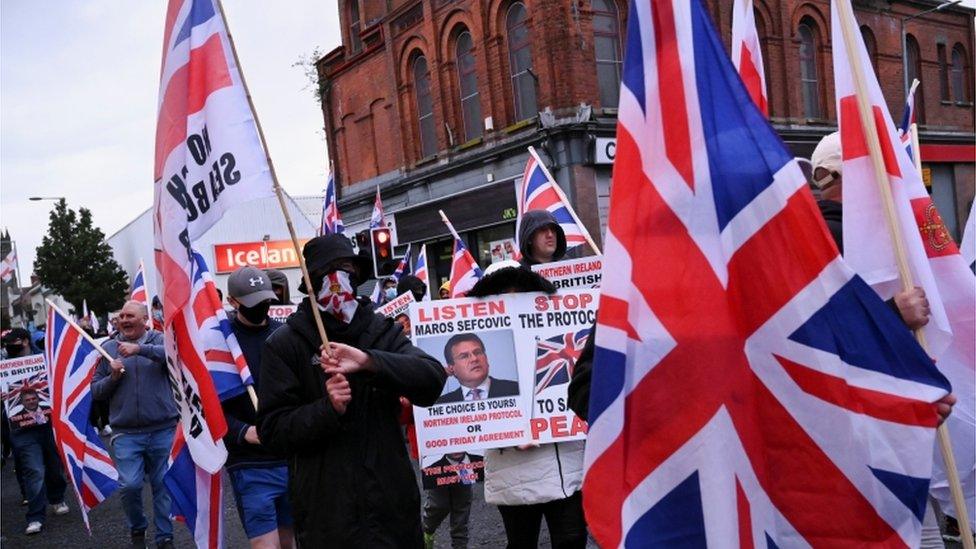
Some unionists in Northern Ireland have held street protests against the protocol
Ulster Unionist Party (UUP) leader Doug Beattie said the EU proposals may be attractive to some but "to other sectors they have been oversold and will under-deliver" as they did not deal with some core issues.
Social Democratic and Labour Party (SDLP) leader Colum Eastwood said the proposals demonstrated "generous flexibility" and called on the UK Government to show the same willingness to reach an accommodation.
Mr Eastwood called on Sir Jeffrey to withdraw his threat to collapse the devolved institutions, in light of the movement made by EU leaders.
Deputy First Minister Michelle O'Neill reiterated her support for the protocol and the EU's "practical proposals to ensure it works more smoothly for local businesses".
"It is time for the British government to put an end to the bluster and to engage constructively with the process of trying to find solutions to the practical issues that need to be addressed," she said.
Sinn Féin are seeking a recall of the Northern Ireland Assembly, but that looks unlikely to happen as their recall petition has not been signed by any other parties.
Speaking on Wednesday, Alliance leader Naomi Long said there was "a bit of gameplay going on".
"It worries me that the EU have dealt with all of those issues, the practical and pragmatic things, that businesses and politicians have raised and as soon as they get within touching distance of a really improved situation, suddenly it's about the ECJ," she said.
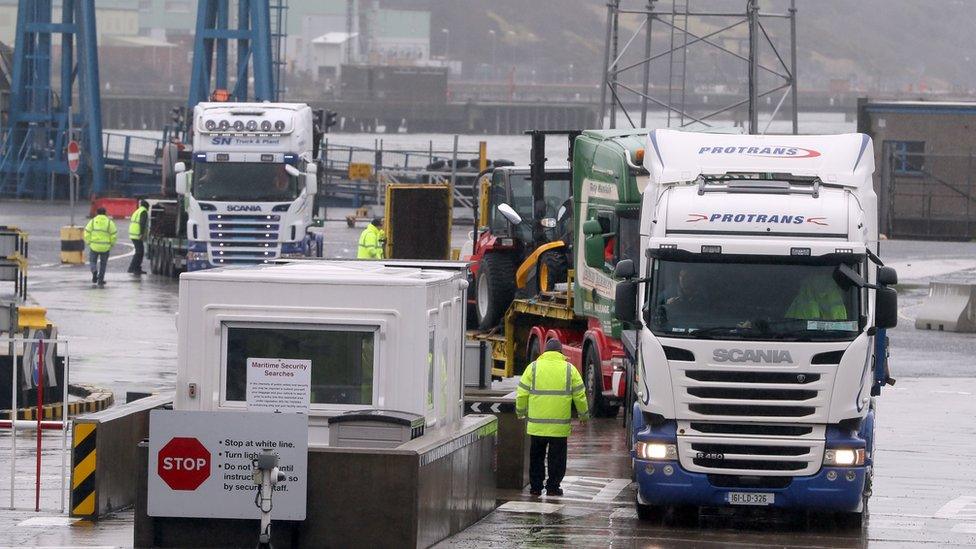
Brexit has led to new checks on goods moving from Great Britain to Northern Ireland
At the start of the year, the new post-Brexit arrangement - known as the Northern Ireland Protocol - was introduced to help prevent checks along the border between Northern Ireland and the Republic of Ireland.
It involves keeping Northern Ireland in the EU's single market for goods - but this, in turn, creates a new trade border with Great Britain. Unionists say this undermines their place in the UK.
Brexit Minister Lord Frost has said the protocol was harming the peace process in Northern Ireland and that it undermined the Good Friday Agreement.
The EU acknowledges that it has caused difficulties for Northern Ireland businesses and is now attempting to ease that burden with what it calls "a different model".
A UK government spokesperson welcomed Mr Šefčovič's efforts to address the concerns about the protocol, adding that the UK was studying these proposals with officials working closely with their EU counterparts to understand the detail.
"Nevertheless it is clear there is still a substantial gap between our two positions," said the spokesperson.
"We need to discuss them intensively in the days to come to see if the gaps can be bridged and a solution found which delivers the significant change needed."
There are also plans to give Northern Ireland politicians and other interested parties greater influence over the implementation of the protocol.
The View is on BBC iPlayer.
- Published13 October 2021
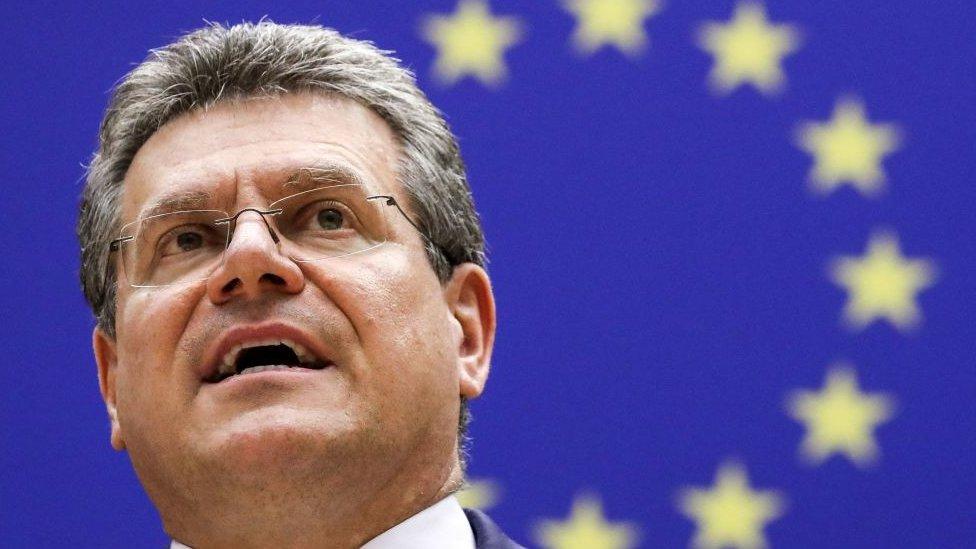
- Published13 October 2021
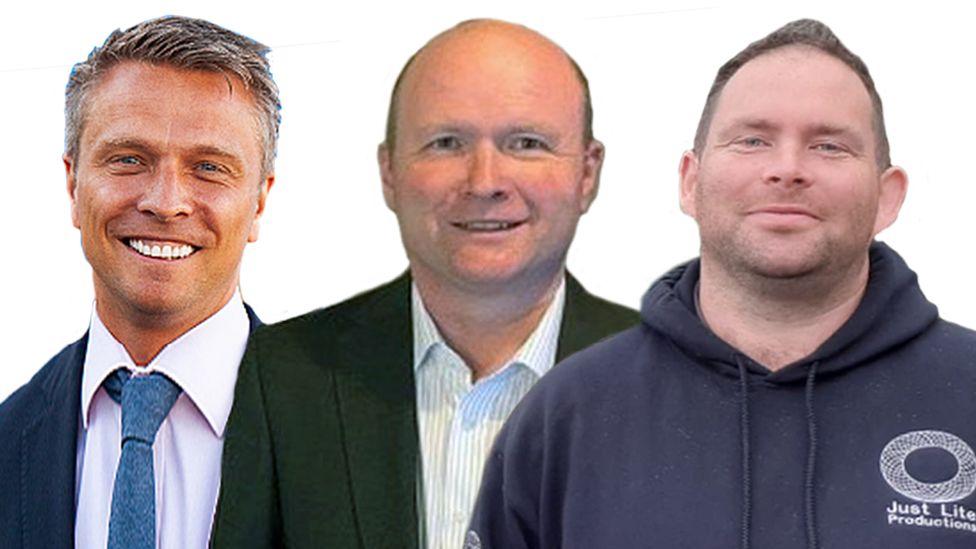
- Published13 October 2021
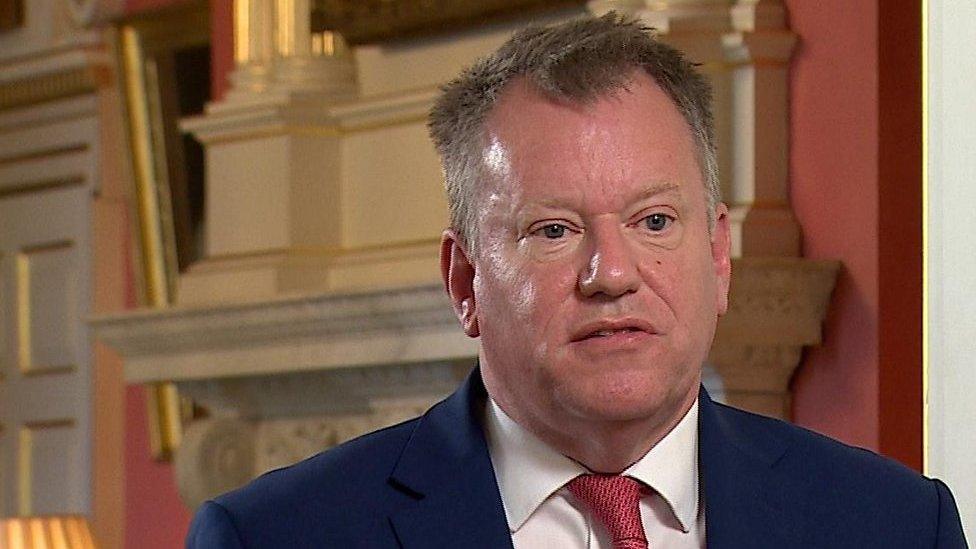
- Published7 October 2021
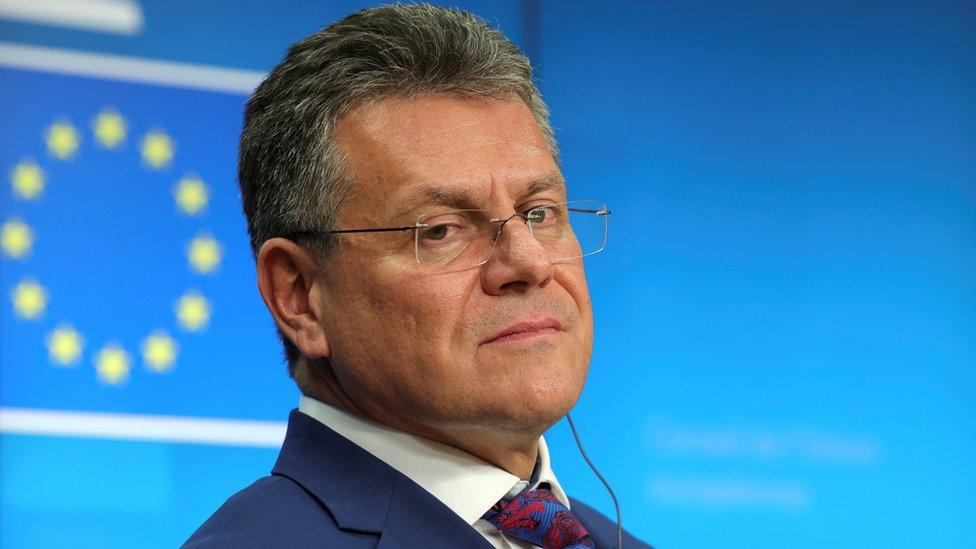
- Published9 October 2021
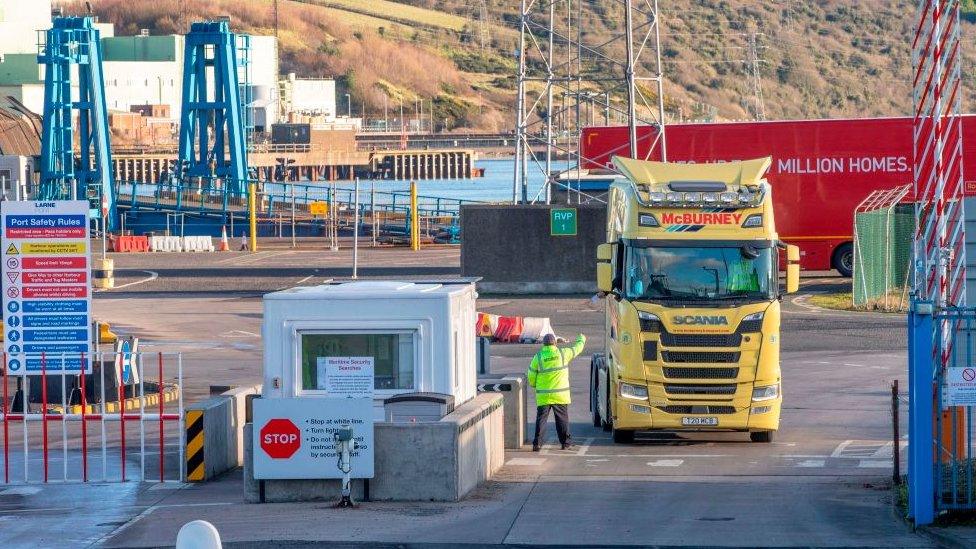
- Published2 February 2024
